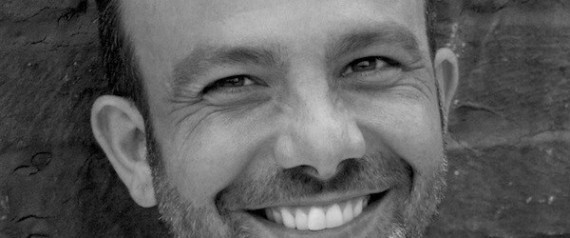 This week, a bill that would create one of the first laws in the state of Virginia to criminalize human trafficking and provide resources for trafficked victims will be voted on by the state senate. I caught up with Delegate Adam Ebbin, who introduced the bill and has been championing the fight against human trafficking in Virginia. He shared his hopes for the future of anti-trafficking efforts in Virginia and his gratitude to the hundreds of Change.org members who have supported this legislation.
This week, a bill that would create one of the first laws in the state of Virginia to criminalize human trafficking and provide resources for trafficked victims will be voted on by the state senate. I caught up with Delegate Adam Ebbin, who introduced the bill and has been championing the fight against human trafficking in Virginia. He shared his hopes for the future of anti-trafficking efforts in Virginia and his gratitude to the hundreds of Change.org members who have supported this legislation.
Kloer: Based on your record, you obviously care a lot about supporting human trafficking victims. Why is human trafficking an important issue to you?
Delegate Ebbin: The more I’ve learned about this horrific crime — and the difficulty law enforcement has had uncovering and prosecuting it in the state of Virginia — the more involved I’ve become in efforts to put an end to it. When you hear about the experiences of victims who are beaten, raped, threatened, manipulated, and locked up, it’s hard not to be moved.
Kloer: Virginia has been called one of the weakest states in the country in terms of anti-trafficking legislation. How will HB 2190 improve services for trafficked persons?
Ebbin: Right now, unfortunately, victims are often afraid to come forward, and when they do, law enforcement and social services don’t know whether to treat them as criminals or victims. My bill will direct the Department of Social Services to develop a plan for identifying trafficking victims, assisting them in applying for state and federal benefits, and coordinating the efforts of state agencies and non-profit organizations in delivering health, housing, education, job training, and legal services.
Kloer: Congratulations on the recent passage of HB 2190 through the Senate. Do you think Governor McDonnell will sign it?
Ebbin: I have worked hard this session to draw Governor McDonnell’s attention to the problem of human trafficking, and these efforts paid off when the Governor released a statement praising bipartisan legislative efforts to combat trafficking in the state of Virginia, so I’m very optimistic that he will sign this legislation.
Kloer: Over 500 people have signed a Change.org petition asking the Virginia legislature to pass this important bill. What would you like to say to your supporters?
Ebbin: I want to thank the hundreds of supporters who signed the petition on Change.org, and countless others who sent emails, wrote letters, and made phone calls to Virginia legislators urging them to end this horrific crime and provide aid to its victims. It made a difference in securing unanimous passage of this key legislation. Because human trafficking takes place under the surface, by its very nature both the crime and its victims are hidden from law enforcement as well as the public consciousness. I’ve often encountered skepticism from fellow legislators that human trafficking is actually a serious crime. That’s why grassroots campaigns to educate our public officials and fellow citizens are so important to building momentum for action.
You can support Delegate Ebbin and human trafficking survivors across Virginia by ensuring HB 2190 and its sister bill HB 1898 (which would give trafficked persons resources and help ensure law enforcement arrest traffickers, not victims) become law. Support the campaign today, and share this petition with all your friends who live in Virginia.
Photo credit: Ken Lund
















